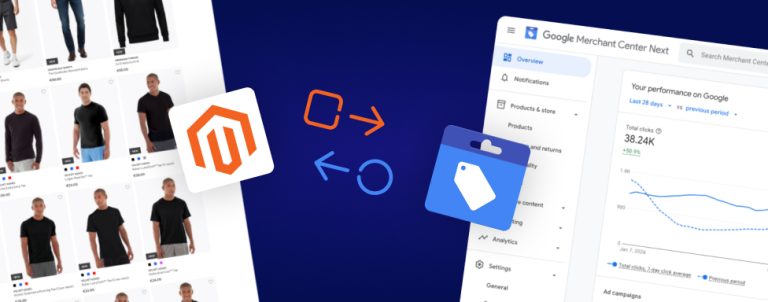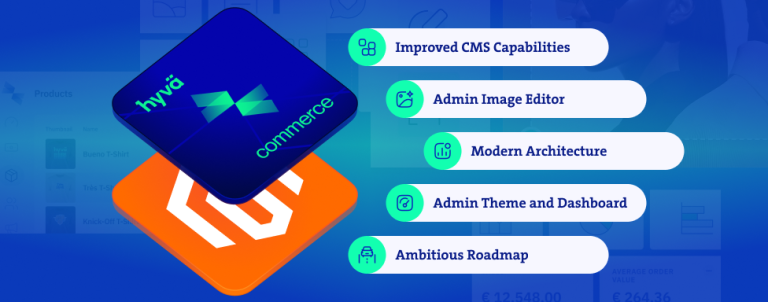Successful partnerships are based on trust and good communication. Whether you are on one side (merchant) or another (eCommerce agency), we all look for these traits in our partnerships.
Not every relationship is meant for success, and that is something every business must contend with – us included. In those cases, it’s important to reflect and learn, which is likely why we are both here – me writing this article and you reading it.
From an agency’s perspective, here are some tips for building successful partnerships.
Forging Successful Partnership 101
You know that choosing the right agency is crucial. Each option comes with its own set of pros and cons. Whether it’s Magento, Shopify, or custom solutions, compatibility with your goals is key. Before making your decision, carefully consider your needs and requirements. For example, at Inchoo, we make great Magento online stores, but that may not mean your business requirements match Magento – perhaps some other platform would suit you better.

Before diving into the project, ensure your agency understands your business inside out. One of our previous articles outlines 47 essential questions every merchant should answer before engaging with an eCommerce agency. This foundational step helps determine project scope, timelines, and necessary features—essential for avoiding costly mistakes down the road. Investing time and money with the wrong partner can turn the cheapest option into the most expensive one.
Having covered the basics, let’s look at the rest of the factors that will make your partnership with a development agency flourish.
Focus on the Big Picture: Align Goals for Success
Your deep knowledge of the business, combined with an agency’s specialized skills, creates a powerful partnership. It is important to provide your partner with detailed information about your business, as well as discuss your business goals and future aspirations.
With their specialized expertise, your partner can advise you on various strategies to achieve these goals. Based on your preferences, they can present you with different options or explore and select the best solution that suits your business needs on their own.
Partnership in Motion: Active Engagement and Open Dialogue
Although we (as humans) have come a long way, we’re still not capable of reading each other’s minds—at least not to my knowledge. That’s why we need open communication, which is not a one-time thing but rather an ongoing process.
From the outset, an agency will use your business insights to shape project requirements. Active communication ensures continuous progress. Without it, delays can occur as decisions are awaited, potentially diverting the team’s focus to other projects. Returning to the project later requires reacquainting with specific details, potentially leading to extra hours and delays.
Maintaining clear communication minimizes disruptions and fosters smoother project execution for both parties.

Single Point of Contact: Your Communication Lead Matters
When too many individuals are involved, discussions can become fragmented and decisions delayed. That’s why having a designated single point of contact is highly advantageous.
When selecting your primary contact, consider these factors:
- Decision-Making Authority: Ensure this person has the authority to make decisions promptly. Centralizing communication avoids unnecessary delays caused by needing approval from multiple stakeholders.
- Understanding Business Needs: Ideally, your contact should be well-versed in your business requirements and technical aspects. You may not have someone suited to this, and that’s fine. In situations where you have to include several people in decision-making processes, communicate that requirement from the beginning so your agency can plan ahead.
- Commitment to Continuous Improvement: Choose someone proactive about enhancing your business, not just meeting minimum requirements. A dedicated contact focused on growth ensures your business stays competitive in the market.
- Consistency in Direction: The chosen contact should be responsible for their decisions and maintain a steady course. Frequent changes in priorities can lead to delays and frustration. Consistency and clear direction help achieve visible results more efficiently. Constant changes in the plan will lead to bigger bills and frustrations within the project team and your team.
Budget Talks: What Can You Afford
While understanding your needs and wants is essential, you’ll need to align them with your budget. Clear financial planning helps ensure your project stays on track and within your means, saving everyone from misunderstandings and unnecessary conflicts.
- Budget Considerations: Determine your budget upfront and consider what you can realistically afford. If your budget is fixed and limited, it might be a good option to decide on a monthly package just to make it easier to stay within it.
- Collaborative Planning: If you want to be more involved in decision-making, ask your agency to plan each step carefully and seek approval before starting any tasks. This way, you can ensure that every expenditure is justified. You should play an active role and communicate promptly.
- Flexible Approaches: Clients with fewer budget constraints typically prefer the agency to handle technical solutions and ensure the project stays cutting-edge. Major decisions are still made collaboratively, but the agency takes the lead in execution.

Strategic Trust: Allowing Your Agency to Lead
Trust is the cornerstone of any successful relationship. If you chose your agency because they stood out from all the rest, it’s important to trust their expertise and give them the creative freedom to develop and implement strategies. You don’t necessarily need to give them complete decision-making authority, but ensure you’re always open to hearing their suggestions and understanding why they believe certain strategies would be beneficial.
If you’re not fully convinced, seek additional information or opinions to make a more informed decision. The biggest mistake you can make is to be completely closed off and dismiss everything your agency suggests.
Additionally, involve your agency in both your short-term and long-term plans. This collaboration allows them to map a strategic path that aligns with your goals, ensuring a smoother journey toward achieving your objectives.
Measuring Milestones: Keeping Your Success on Track
Just as I mentioned earlier, it’s essential for your partner to have insight into your business performance. This transparency allows them to assess their results accurately. Key metrics such as:
- How long do users spend on your website or specific pages?
- How high is your bounce rate?
- Which pages have the highest drop-off rates?
These metrics are directly linked to your technical solution and can indicate areas needing attention. By stepping back and evaluating the eCommerce website your agency developed and launched, you can determine if it’s performing as expected, better or worse. Establishing clear criteria for measuring success ensures that both you and your agency are aligned and can make informed decisions to continually improve your project’s outcomes.
The Next Step
Building a successful partnership with your eCommerce agency requires more than just a contract. Using these suggestions, you’ll lay a solid foundation for collaboration that fosters mutual understanding and achievement of your eCommerce goals. Cheers to driving your partnership success to new heights.



